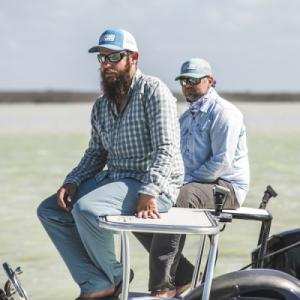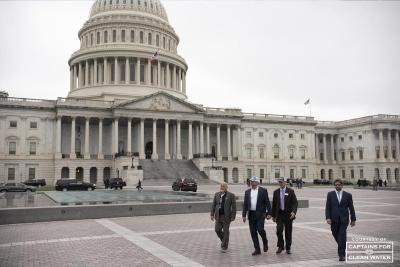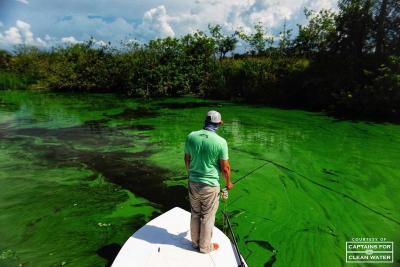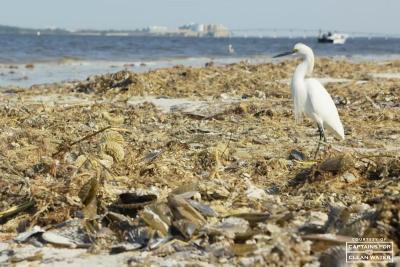
Captain Daniel Andrews and Captain Chris Wittman haven’t been fishing much these days. “For all intents and purposes, we had to quit,” says Andrews, a cofounder of Florida-based nonprofit Captains For Clean Water (CFCW). “We walked away from our dream jobs to try to save those dream jobs.”
The duo, who once spent upwards of three hundred annual days on the water as successful fishing guides, have spent the last four years in the trenches of science and policy, advocating for solutions to the devastating water issues plaguing Florida. After decades of gross mismanagement, the state is facing a large-scale water crisis, and it’s not just the fishing industry that’s at stake.
Things weren’t always this way. “I remember what this area was like when I was a kid—the cleanest water, the best game fish, just world-class stuff,” says Wittman, whose career as a guide spans two decades. He and Andrews grew up in the Fort Myers/Sanibel area, and childhoods on the water led to the pursuit of a captain’s license for both. As years passed, however, it became clear that something was amiss. “The changes we were seeing were happening in an alarmingly short amount of time,” Wittman notes. “The beautiful ecosystems we were fishing were becoming wastelands right in front of us.” From toxic algae blooms to metric tons of dead marine life washing ashore, the health of the environment was declining—fast.
CFCW got off the ground quickly, and Wittman and Andrews left guiding to spearhead the effort full-time. Meanwhile, local support continued to grow. “Florida has a 109-billion-dollar-per-year tourism industry that relies on clean water, and if we continue down this road, it too will collapse,” Wittman says. “This is really an investment in the future of our state’s economy.”
With thousands of Floridians behind them, as well as major brands like Yeti and Costa, CFCW finally began to see a shift. In 2017, it had its first major win. The passage of Senate Bill 10 provided $800 million in state funding to build the Everglades Agricultural Area (EAA) Storage Reservoir, restoring the southern flow of desperately needed fresh water to the Everglades and Florida Bay.
In the years since, CFCW has had more successes, on both the state and federal levels. “We’re seeing more transparency and a greater focus on Everglades restoration than ever before,” Andrews says. “Things are constantly changing for the better.”
So far, though, CFCW’s greatest accomplishment has been creating a movement of awareness. “People are talking about water quality in a way they weren’t before,” Wittman notes. “Everglades restoration is the largest environmental project of its kind ever undertaken in the world. It’s going to take time to fix what’s been broken, but we believe our supporters are in it for these long-term solutions.”
Today, in addition to its ongoing work with policymakers, the organization is expanding its education initiatives, ensuring that the next generation has the tools and knowledge to effect change. It’s also growing its team—with just eight people based in Fort Myers, the CFCW staff is often presented with more opportunities than it can take on. Wittman and Andrews say that receiving the Rare Life Award will provide tremendous aid in these areas and beyond. “At a time when we have the chance to make real, historic change, this award will play a huge role,” Wittman says. “But the awareness this honor brings to the cause is as great a value as the prize money, if not greater.”
To learn more about Captains For Clean Water, visit https://captainsforcleanwater.org





